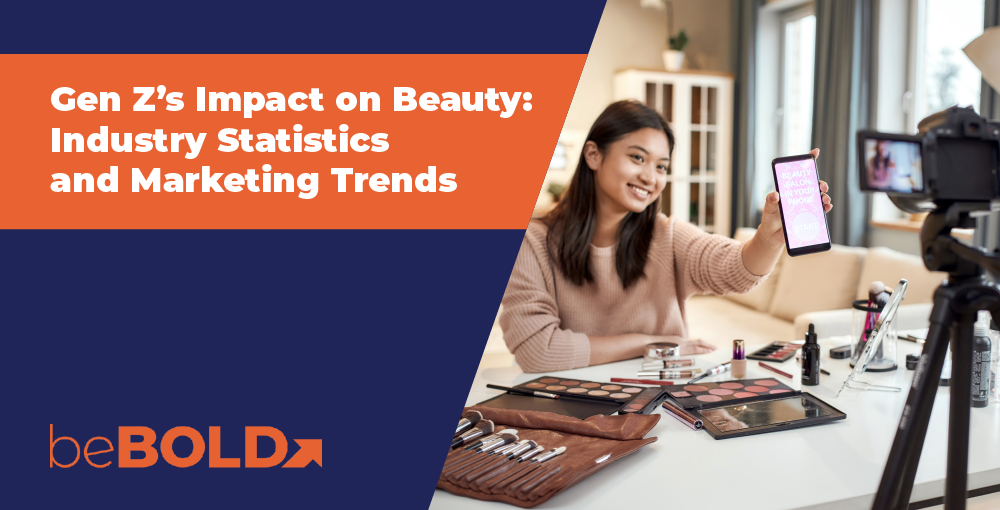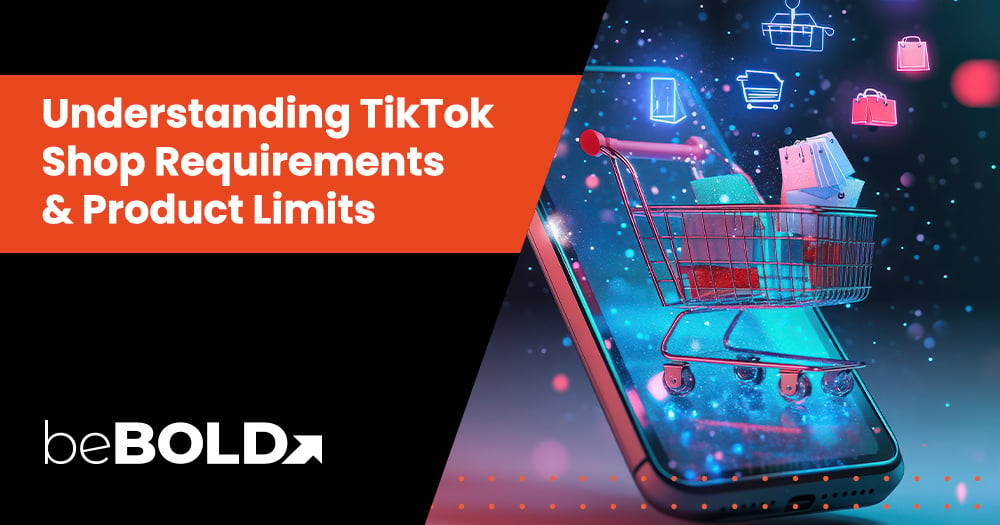Generation Z is revolutionizing the beauty industry with their distinct preferences and behaviors, reshaping standards, driving innovative trends, and compelling brands to rethink their strategies.
What makes Gen Z so influential? Born between the mid-1990s and early 2010s, they now comprise about 32% of the global population, making them the largest generation worldwide. With their purchasing power steadily rising, Gen Z is expected to make up 40% of global consumers by 2025.
But it’s not just their numbers that make them significant—it’s how they engage with the world. Gen Z spends considerable time online, with social media being their primary source of information and inspiration.
They are more likely to believe influencers and peer reviews than traditional advertising, which has led to a shift in how brands approach beauty industry marketing strategies.
If you’re a brand aiming to connect with Gen Z through social media marketing in the beauty industry or looking to understand the future landscape, it’s crucial to know how the beauty industry influences the market. This knowledge is key to staying competitive and relevant.
Here are some of the Gen Z statistics that give you an overview of how they impact the beauty industry today.
Gen Z as Consumers: An Overview
Generation Z, often called “Zoomers,” includes individuals born between 1997 and 2012, making them approximately 12 to 27 years old in 2024.
As they enter their formative years as consumers, this group represents a noteworthy portion of the global population, with their market influence expected to grow as they join the workforce and increase their spending power.
Unlike previous generations, who often valued brand prestige or convenience, Gen Z is defined by its commitment to social and environmental responsibility, favoring companies that align with their beliefs.
Three fundamental values stand out:
- Diversity and inclusivity - As the most diverse generation in history, Gen Z demands brands embrace differences, celebrating inclusivity and challenging traditional beauty standards. They value representation across race, gender, sexual orientation, and body type.
- Sustainability - For many Gen Z consumers, environmental sustainability is essential. They prefer eco-friendly, ethically sourced products and are more likely to participate in sustainable habits like recycling and waste reduction.
- Authenticity - Gen Z craves authenticity and prefers unfiltered content over polished advertisements. Brands that transparently share their processes, admit their mistakes, and communicate honestly are more likely to earn their loyalty.
Digital nativity and technological proficiency
Gen Z is also the first generation that parents raised in the era of smartphones, social media, and instant access to information. This digital nativity has shaped them into tech-savvy consumers who are comfortable navigating multiple platforms and devices. Their proficiency with technology has several implications for their behavior as consumers.
- Omnichannel shopping
Gen Z expects a seamless shopping experience across both online and offline channels. They easily switch between mobile apps, websites, and physical stores, often using digital tools to compare prices, read reviews, and find the best deals before purchasing.
- Social media influence
Platforms like TikTok, Instagram, and YouTube are more than just entertainment—they’re channels for discovering new products and trends. Influencers, peer reviews, and viral content significantly shape their purchasing decisions, making social media marketing essential for brands targeting this demographic.
- Personalization
Gen Z has come to expect personalized experiences growing up in an era of data-driven marketing. They are more likely to participate with brands that offer tailored recommendations, personalized content, and products that cater to their precise needs and preferences.
Gen Z in the Beauty Market: Industry Statistics and Trends
Here’s a look at some Gen Z consumer statistics and trends that illustrate how they are influencing the beauty market:
1. Gen Z’s market share in beauty
As of 2023, Gen Z accounts for approximately 35% of the online beauty market, spending around on beauty products. This substantial market share underscores the importance of catering to this demographic.
With Gen Z’s strong preference for brands that prioritize inclusivity and sustainability, beauty businesses must quickly adapt to meet these demands or risk losing a substantial portion of their consumer base.
2. Preference for inclusive and diverse products
Data from 2023 reveals that 67% of Gen Z consumers welcome recommendations from beauty influencers with a different gender identity. This generation expects brands to offer various shades, formulations, and products that cater to multiple skin types and tones.
Brands that neglect inclusivity risk alienating a significant portion of the market. To stay competitive, beauty companies must prioritize diverse product lines and inclusive marketing strategies that reflect the broad spectrum of beauty that Gen Z values.
3. Rise of sustainable beauty products
According to a report, 46% of Gen Z beauty consumers prefer products with sustainable packaging and ethically sourced ingredients. This trend highlights a growing demand for eco-friendly and socially responsible beauty products.
For Gen Z beauty brands, adopting sustainability is not just a trend but a necessity. Companies should focus on transparent sourcing practices, sustainable packaging, and ethical production methods to meet the expectations of this environmentally conscious generation.
4. Digital and social media influence
Over 70% of Gen Z beauty product purchases are due to social media platforms, particularly TikTok and Instagram. This Gen Z online shopping statistic underscores the power of digital platforms in shaping purchasing decisions and the importance of leveraging these channels for marketing.
Brands must invest in digital marketing strategies that engage Gen Z on their preferred platforms. Cooperating with influencers and creating engaging content that resonates with this audience can significantly boost brand visibility and sales.
5. Impact on traditional beauty brands
A 2024 report shows that 43% of Gen Z consumers prefer shopping from direct-to-consumer (DTC) beauty brands over traditional retail stores. This preference for DTC brands is due to their desire for more authentic interactions and direct engagement with the brands they support.
Gen Z’s Beauty Preferences and Behaviors
Understanding Gen Z’s preferences and behaviors is crucial if you’re looking to capture this dynamic audience. Here are some of Gen Z beauty trends that affect their buying decisions:
-
Beauty spending and popular product categories
Compared to other demographics, Gen Z shows a strong preference for skincare, representing 41% of their beauty spending and surpassing makeup, which has traditionally led the market. This shift reflects a broader trend toward self-care and wellness, favoring products that promote long-term skin health over immediate aesthetic enhancement.
Skincare brands like CeraVe and The Ordinary are particularly popular among Gen Z consumers due to their affordable yet effective product offerings.
-
Clean, natural, and sustainable beauty products
Gen Z consumers are leading the clean beauty movement, with 73% expressing a preference for brands that are transparent about their ingredients and committed to ethical sourcing. This generation values vegan, cruelty-free, and eco-friendly products, reflecting their broader concerns for sustainability and social responsibility.
-
Diversity and inclusivity in product offerings
Diversity and inclusivity are non-negotiable, with 70% of Gen Z considering them important factors in purchasing decisions. They expect beauty brands to offer various shades and formulations to cater to multiple skin tones and types. Representation in marketing campaigns is crucial for Gen Z, who want to see themselves reflected in the brands they support.
Fenty Beauty by Rihanna revolutionized the industry with its 50-shade foundation line, setting a new standard for inclusivity. This success has inspired other brands to expand their shade ranges and use more inclusive marketing practices.
-
Self-expression and experimental looks
Gen Z views beauty as a self-expression, often experimenting with bold and unconventional looks. They gravitate towards products that allow them to explore their creativity, such as colorful eyeshadows, vibrant hair dyes, and unique makeup palettes.
This generation doesn’t concern itself with traditional beauty norms and is more interested in using beauty to express individuality.
-
Digital and social media platforms
Digital and social media platforms are the primary channels through which Gen Z discovers and engages with beauty products.
Platforms like TikTok, Instagram, and YouTube are critical for beauty brands looking to reach this audience. Influencers and user-generated content significantly shape Gen Z’s purchasing decisions, with authenticity and relatability being key drivers.
6 Marketing Strategies that Resonate with Gen Z Shoppers
When targeting Gen Z shoppers, especially in the Gen Z beauty industry, brands must adopt marketing strategies aligning with this generation’s unique values and behaviors. Below are effective methods that you can implement.
1. Emphasize authenticity and transparency
Gen Z shoppers are highly discerning and value honesty from the brands they support. They expect clear communication about product ingredients, sourcing, and ethical practices. To resonate with this generation, ensure your messaging is straightforward and authentic.
You can use Amazon’s A+ Content to enhance product listings by providing additional information about ingredient sourcing, certifications (such as cruelty-free), and behind-the-scenes stories. This approach resonates with Gen Z’s demand for transparency.
2. Utilize social media influencers and collaborations
Social media influencers are potent allies in reaching Gen Z, as this generation trusts peer recommendations more than traditional advertising. Affiliating with influencers who align with the brand’s values can help create authentic connections with Gen Z shoppers.
e.l.f. Cosmetics has successfully collaborated with influencers on platforms like TikTok, resulting in viral product launches such as the e.l.f. Camo CC Cream. These collaborations often include product reviews, tutorials, and user-generated content that align with Gen Z’s preference for authentic and relatable experiences.
3. Create interactive and personalized marketing campaigns
Interactive marketing experiences and personalized content are vital to engaging Gen Z. This generation appreciates campaigns that cater to their individual preferences and encourage their participation in the brand story.
Use Amazon’s personalization tools, such as product recommendations and targeted ads, to create tailored shopping experiences for Gen Z customers. You can also leverage the platform’s customer data to craft personalized email campaigns that highlight products based on previous purchases or browsing history.
4. Optimize product listings for Gen Z
When targeting Gen Z shoppers, clear, detailed, and visually appealing product listings are crucial. This generation relies heavily on online reviews, product descriptions, and images to inform their purchasing decisions.
Enhance your listings with high-resolution images, 360-degree views, and videos demonstrating the product’s use. Additionally, make sure that descriptions are detailed, highlighting key benefits, ingredients, and usage instructions.
5. Host live and streaming events
Live events and real-time engagement are highly effective in connecting with Gen Z. Platforms like Amazon Live allow you to host live streams where you can demonstrate products, answer questions, and offer exclusive deals.
6. Leverage reviews and ratings
Gen Z shoppers heavily rely on reviews and ratings when making purchasing decisions. Urging satisfied customers to leave positive reviews and responding to feedback can significantly impact your brand’s reputation.
Prompt satisfied Gen Z customers to leave reviews through follow-up emails or in-package inserts. Reply to positive and negative reviews to show that your brand values customer feedback and commits itself to improving the shopping experience.
The Next Chapter in Beauty
As Gen Z continues to redefine beauty standards, brands must evolve to meet their expectations. Prioritizing authenticity and transparency, leveraging the influence of social media, and utilizing personalized marketing are essential strategies for winning over this generation.
By understanding their unique values and behavior, you can forge strong, lasting relationships with Gen Z consumers and secure your place in the industry’s future.
If you need help in evolving your business to keep pace with Gen Z, consider partnering with an Amazon beauty agency like BeBold Digital. Our Amazon account management services provide relevant data and actionable insights to drive customer conversions.
Contact us today for more information.







Comments